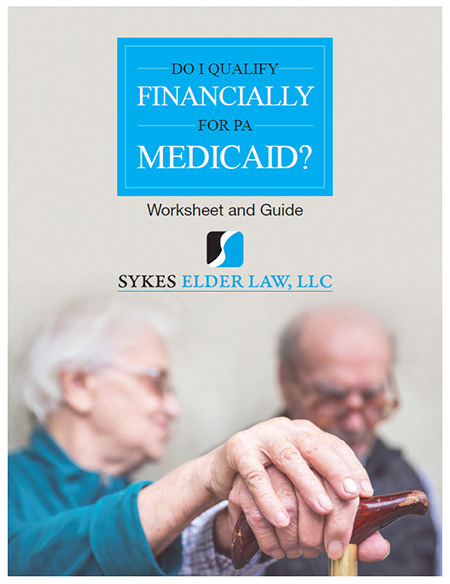A Pennsylvania Medicaid application asks this question about an applicant’s home:
“Are you planning to return to the property? __ Yes __ No.”
What happens if you say yes or no, and what happens then?
Here are some of the basic Pennsylvania rules governing a Medicaid applicant’s personal residence when applying for long term care supports and services.
Exempt property and transfers
If you say on the application that you plan to return to the property (even if that is highly unlikely), the property is exempt under the Medicaid rules, meaning that you will not have to sell it or do anything else with it to qualify for benefits. (Different rules apply if the applicant’s equity interest in the home exceeds $500,000, but that rarely happens in this region.)
A married applicant may transfer title to a spouse living at home. If the spouse at home lives longer than the applicant, the home is preserved.
A Medicaid applicant or recipient can also give the home away to a son or daughter who is under 21 years old, blind, or permanently and totally disabled (or put it into trust for that person). Such a transfer of title is called an “exempt” transfer because it is free of the ineligibility penalty that usually applies when someone applying for Medicaid gives away money or property.
An applicant can also make an exempt transfer of the home to “a trust for the sole benefit of an individual under 65 years of age who is disabled based on SSI criteria.” A special needs trust for an applicant’s grandchild would be an example.
An applicant can also make an exempt transfer of the home to a son or daughter who has lived in the home for at least two years before the applicant went into a nursing home, and who provided the care needed to keep the applicant at home.
Occasionally an applicant has a sibling who is also a part owner of the home. In that case, the applicant can make an exempt transfer of his or her interest to the sibling, provided the sibling has resided there for at least a year before the applicant went into the nursing home.
If you say you don’t plan to return, and you don’t make an exempt transfer of the home, the property is exempt for six months provided you make a good faith effort to sell it.
Estate Recovery
If your house is exempt because you say you plan to return, but you don’t transfer it to someone else, you have another problem: the Pennsylvania Estate Recovery Program.
The Medicaid program in Pennsylvania tracks what is spends for each person receiving benefits for long term care. The Estate Recovery Program makes a claim for those costs against the estates of deceased recipients.
So while the home was exempt during your lifetime, if you die owning it your name alone, your estate will have to satisfy the estate recovery claim. Such a claim is usually satisfied by selling the house and using the sale proceeds to pay the claim. If the deceased received benefits for a long time, the claim can consume the entire value of the home.
Therefore, in the case of an unmarried or widowed applicant, it’s frequently better to sell the home and make some better use of the proceeds before applying for Medicaid.
An elder law attorney can help you plan effective ways to avoid losing your home to estate recovery.





